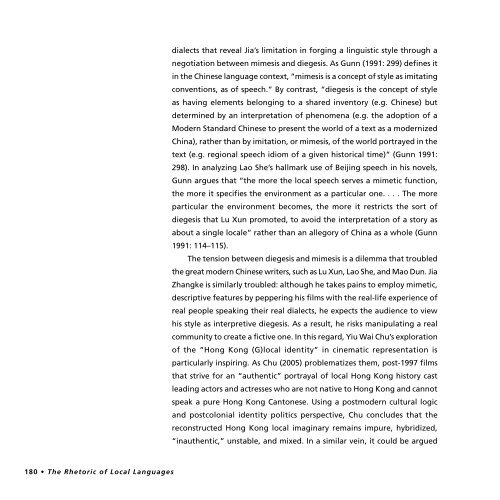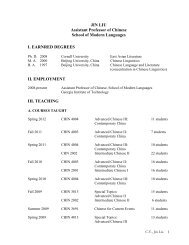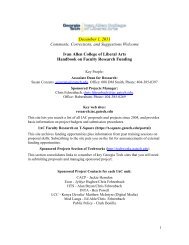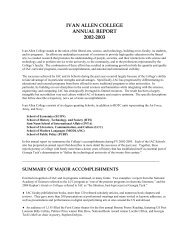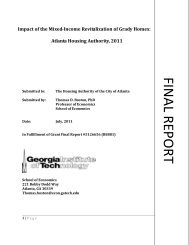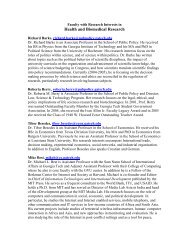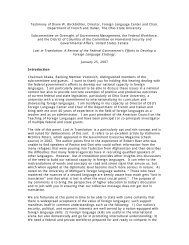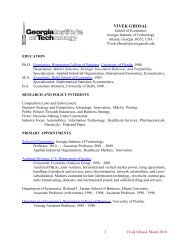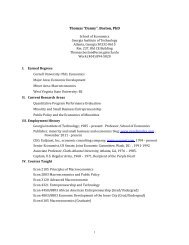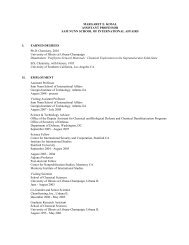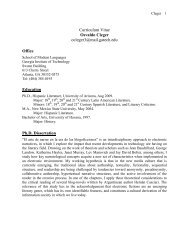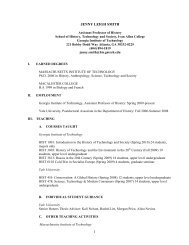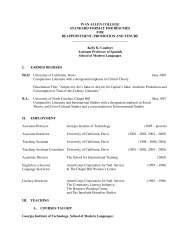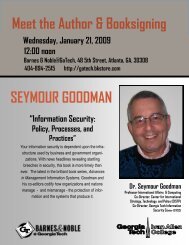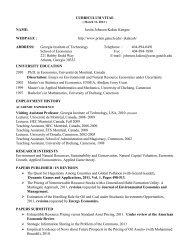Read this paper
Read this paper
Read this paper
You also want an ePaper? Increase the reach of your titles
YUMPU automatically turns print PDFs into web optimized ePapers that Google loves.
dialects that reveal Jia’s limitation in forging a linguistic style through a<br />
negotiation between mimesis and diegesis. As Gunn (1991: 299) defines it<br />
in the Chinese language context, “mimesis is a concept of style as imitating<br />
conventions, as of speech.” By contrast, “diegesis is the concept of style<br />
as having elements belonging to a shared inventory (e.g. Chinese) but<br />
determined by an interpretation of phenomena (e.g. the adoption of a<br />
Modern Standard Chinese to present the world of a text as a modernized<br />
China), rather than by imitation, or mimesis, of the world portrayed in the<br />
text (e.g. regional speech idiom of a given historical time)” (Gunn 1991:<br />
298). In analyzing Lao She’s hallmark use of Beijing speech in his novels,<br />
Gunn argues that “the more the local speech serves a mimetic function,<br />
the more it specifies the environment as a particular one. . . . The more<br />
particular the environment becomes, the more it restricts the sort of<br />
diegesis that Lu Xun promoted, to avoid the interpretation of a story as<br />
about a single locale” rather than an allegory of China as a whole (Gunn<br />
1991: 114–115).<br />
The tension between diegesis and mimesis is a dilemma that troubled<br />
the great modern Chinese writers, such as Lu Xun, Lao She, and Mao Dun. Jia<br />
Zhangke is similarly troubled: although he takes pains to employ mimetic,<br />
descriptive features by peppering his films with the real-life experience of<br />
real people speaking their real dialects, he expects the audience to view<br />
his style as interpretive diegesis. As a result, he risks manipulating a real<br />
community to create a fictive one. In <strong>this</strong> regard, Yiu Wai Chu’s exploration<br />
of the “Hong Kong (G)local identity” in cinematic representation is<br />
particularly inspiring. As Chu (2005) problematizes them, post-1997 films<br />
that strive for an “authentic” portrayal of local Hong Kong history cast<br />
leading actors and actresses who are not native to Hong Kong and cannot<br />
speak a pure Hong Kong Cantonese. Using a postmodern cultural logic<br />
and postcolonial identity politics perspective, Chu concludes that the<br />
reconstructed Hong Kong local imaginary remains impure, hybridized,<br />
“inauthentic,” unstable, and mixed. In a similar vein, it could be argued<br />
180 • The Rhetoric of Local Languages<br />
MCLC 18.2.indd 180<br />
12/20/06 2:01:37 PM


